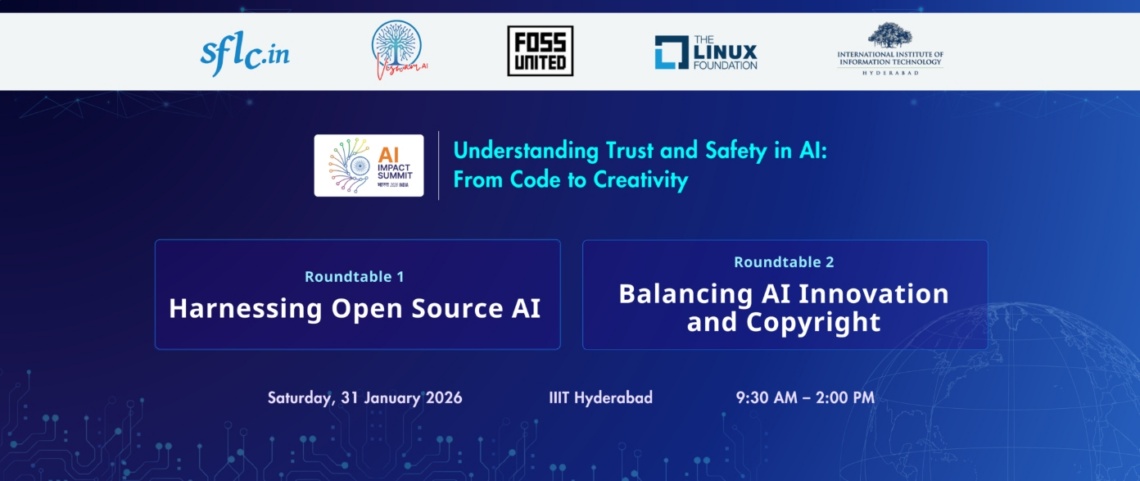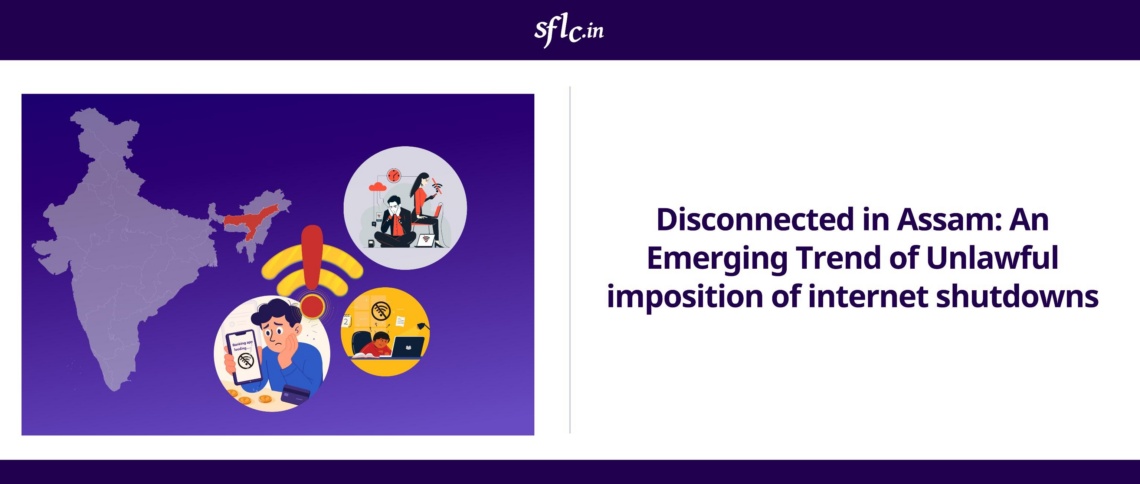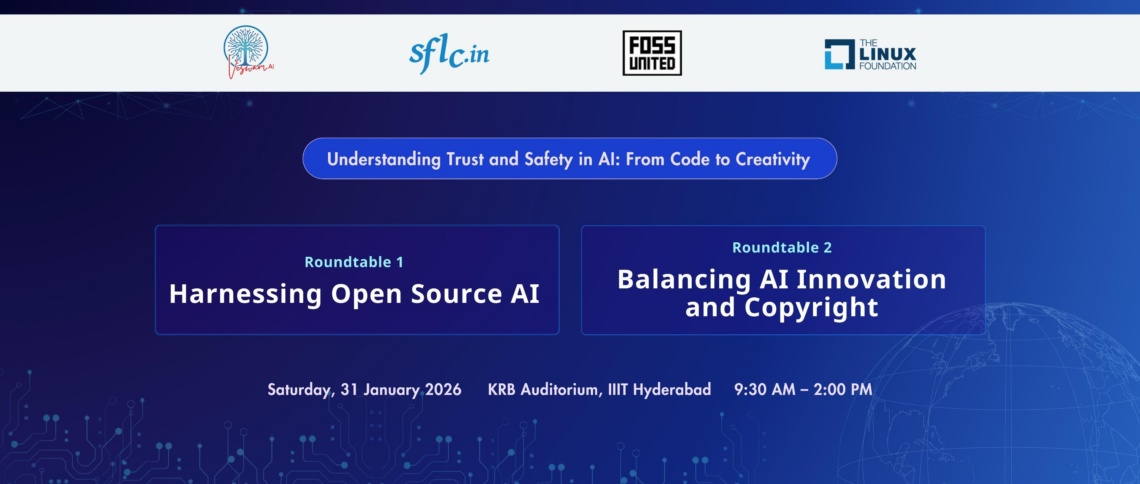Delhi High Court Approves Take Down of Content Globally
Asks Facebook, Google, YouTube and Twitter to remove defamatory content from their global services
Statement: At SFLC.in we believe that ordering intermediary platforms to take down content globally negatively impacts freedom of expression online, as different countries have different standards of speech. Such orders, require intermediary platforms to rely on automated filters and scan each uploaded content to check for its legality, which severely undermines the privacy of Internet users throughout the word. If global take downs become the norm, then the standard of speech on the Internet will reflect that of nations having the most regressive laws on free expression.
Our detailed analysis of the judgment can be read – here.
In a far-reaching judgment delivered yesterday by the High Court of Delhi, the court affirmed the position that Indian courts can issue global take down orders to Internet intermediaries like Facebook, Google and Twitter for illegal content published by users of their platforms. The court discussed two recent judgments of the Court of Justice of the European Union (CJEU), wherein the top-court of the Union assessed the validity of global take down orders (Google v. CNIL and Eva Glawischnig-Piesczek v. Facebook).
[Since the time we posted this analysis, Facebook has sought an appeal of the Single Judge Bench decision in this matter before a Division Bench (comprising of two judges). The next hearing in this matter is on December 7th, 2019. We’ll keep our readers updated with the developments in this case.]
[SFLC.in was an intervener in one of these matters before the CJEU – Google v. CNIL. To read a summary analysis of that matter, click here.]
In the current case – Swami Ramdev v. Facebook [CS (OS) 27/2019 – Delhi High Court], the petitioner – Swami Ramdev (a public figure in India) requested the court to order global take down of content (videos), which was defamatory in nature, from online platforms – Facebook, Google, YouTube and Twitter (including other unnamed intermediaries). The content in question were videos about a book on Swami Ramdev titled – ‘Godman to Tycoon – The Untold Story of Baba Ramdev’ by Priyanka Pathak Narain. The petitioners in a separate suit before the Delhi High Court had already obtained a restraining order on the publishing of the book (Swami Ramdev v. Juggernaut Books – CM (M) 556/2018) on the basis that the book contained defamatory content on Swami Ramdev’s life.
All platforms agreed to take down the content in question from their India specific domains and use geo-blocking to ensure refusal of access (in accordance with law declared by the Supreme Court of India in Shreya Singhal v. Union of India). But on the question of global take downs, platforms resisted based on principles of international comity, different standards of speech and defamation around the world, and that they did not actively monitor uploads on their platforms being intermediary platforms.
The court refuted these claims and held that online platforms can be ordered to take down content globally by a competent court in India (global take down for illegal content uploaded from India and local take down/ geo-blocking for content uploaded from outside India). The court made the following arguments to support its stance:
-
Interpretation of Sec. 79 of the IT Act: The court relying on Shreya Singhal stated that once an intermediary had been ordered by a court of law to take down content from its platform, such a platform must disable access not just from the local domains but from its global service. While arriving at this conclusion, the court relied on the definition of ‘computer resource’ under the IT Act and held that computer resource included a ‘computer network’ which meant that platforms had to remove content from their entire computer network (which meant their global service) once an Indian court had held content to be illegal.
-
Global Uploads: The court argued that when information is uploaded on Internet platforms, they are available on their global services, thus at the time of take down too, such platforms must remove the content from their global domains and not just locally.
-
Global Take Downs: The court stated that since all the said platforms take down content globally when certain information violates their community standards, therefore it was technologically possible for them to take down content ordered by courts globally too.
-
Extra territorial jurisdiction of IT Act: Relying on Sec. 75 of the IT Act, the court held that the IT Act allows for extra territorial application for offences or contraventions committed outside India, so long as the computer system or network is located in India. Thus, so long as either the uploading takes place from India or the information/ data is located in India on a computer resource, Indian courts would have the jurisdiction to pass global injunctions.
-
Removal should be complete: The court reasoned that once content has been asked to be taken off, such removal needs to be complete. The technological ability of users to circumvent geo-blocking (by using VPN and web proxy services) renders the protection incomplete and thus for a complete remedy, a take down must be global.
Interestingly, the court re-established a ‘notice-and-takedown’ mechanism for future uploads of the defamatory content in question, allowing Swami Ramdev to approach the platforms directly for future uploads. But, the court has allowed a counter-notice system for the specific case as well, by allowing platforms to refute claims of illegality and shifting the burden of proof back on claimants, in which case, they will have to approach the courts for an appropriate remedy.
Unfortunately, the court did not consider the following arguments while delivering its judgment:
-
Effect on free speech and privacy: Different countries have different standards of speech and defamation around the world. Mandating platforms to take down content globally will run the risk of making intermediaries fall foul of law in other countries. For ex. if another nation asks for take down of content which is perfectly legal in India, it will affect the free speech and right to information rights of Indians on the Internet. Unfortunately, the court did not delve too deeply into this issue.
-
Use of VPNs can still circumvent restriction: Users may still use VPN services to mask their upload location and both upload the illegal content and then use the same service to download said content as that information will only be blocked for Indian domains. Though the court has reasoned that global take downs become important due to the availability of VPN and web proxy services, despite the order, users can still utilise such services to upload and download the defamatory content in question, making use of a computer located in India. Thus global take down are not a proportionate remedy and the costs greatly outweigh the benefits, since easily available technology tools may circumvent the intended protection.
-
Notice-and-takedown: The court recognized the principle as expounded in Shreya Singhal that intermediaries cannot apply their own mind when it comes to determining which information should be blocked or not, but in its order allowed the petitioners to send notices directly to platforms if the content in question was found to be re-uploaded (though the court allowed for a counter-notice mechanism, writing in new jurisprudence, it steered away from the protection granted to intermediaries by Shreya Singhal, where take downs could be requested only by courts or appropriate government agencies).
In the recent judgment of the CJEU in Google v. CNIL, the court while stating that Google cannot be made to de-reference links from its global service, based on the content which has been declared to be illegal by an EU member state, reasoned that ‘right to be forgotten’ (as was the issue in the particular case) standards were different in different nations around the world. Considering the principle of proportionality, wherein the ‘right to be forgotten’ needs to be balanced with the competing right to information of Internet users, the court held that since the standards of such proportionality will vary across the world, it will be incorrect to order Google to take down links from its global service. Such determination of different legal standards for speech or privacy around the world was not considered by the Delhi High Court while arriving at its decision.
Unfortunately, other judgments from around the world, in particular – Google Inc. v. Equustek Solutions Inc. where Google was asked to de-index listings for protection of trade secret rights of a subject from its global versions and the Supreme Court of Canada ruled against Google and ordered a global take down; and Eva Glawischnig-Piesczek v. Facebook Ireland Limited – where the CJEU asked Facebook to take down defamatory content against Ms. Piesczek from its global service, embolden the position taken by the Delhi High Court in ordering a global take down.
Indian courts must consider the free speech and privacy rights of Internet users while assessing intersections of technology and traditional laws such as defamation. The court while relying on the definitions of ‘computer resource’/ ‘computer network’ and while protecting the right to privacy and reputation of one individual, ended up undermining privacy, speech, and information rights of not just Indians but Internet users around the world.
Considering the issues arising from this matter, we will be shortly publishing a more detailed analysis of the case.
[Recently, we wrote a comprehensive report on Intermediary Liability covering trends in Indian law and policy and from around the world. You may download our report from – here.]
A copy of the judgment can also be downloaded from here:




